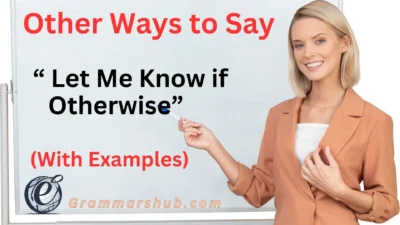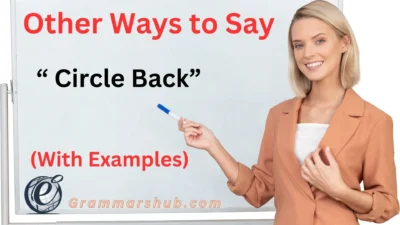Sometimes, words can feel like a warm hug when you reconnect with someone after a long period. It’s easy to fall into familiar phrases like “long time no see,” but finding the right words can add a special touch to your message. When expressing warmth, care, and thoughtfulness, a personal greeting can make your reunion feel even more meaningful.
Instead of relying on the same tired phrase, consider these 35 alternatives that will help you convey excitement and affection. Each phrase comes with context, tone, and examples to help you communicate with more warmth and empathy.
What Does “Long Time No See” Mean?
Long time no see” is a casual, often playful way to greet someone you haven’t seen in a while. It’s typically used in informal settings and conveys a sense of familiarity, sometimes with an undercurrent of joy or surprise at reuniting. It’s not just about the time that’s passed; it’s also about the emotions of reconnecting, which is why it’s so often paired with enthusiasm.
Is It Professional/Polite to Say “Long Time No See”?
While “long time no see” is friendly and casual, it’s not always appropriate for professional or formal settings. In a work context, you might prefer to use more formal greetings, like “It’s been a while” or “I’m glad to see you again.” However, in personal and relaxed interactions, it can be a charming and relatable expression that instantly brings people together.
Advantages or Disadvantages of “Long Time No See”
Advantages:
- Casual and Friendly: Perfect for casual relationships where warmth and informality are the norm.
- Expresses Familiarity: Helps convey that you have an existing relationship with the person.
- Emotionally Expressive: Can carry a sense of excitement when used in a joyful context.
Disadvantages:
- Overused: It can feel generic if you use it too frequently.
- Informal: Not always suitable for professional or formal environments.
- May Lack Depth: It might not fully capture the emotions of reuniting after a long absence.
1. It’s Been a While
Meaning: A simple, neutral way of acknowledging the time that has passed since you last saw someone.
Explanation: This phrase can be used in almost any context and is highly versatile.
Scenario Example: “Hey! It’s been a while, hasn’t it?”
Best Use: Use it when you’re greeting someone you haven’t seen in a while, and you want to express that time has passed without being too informal.
Tone: Friendly, casual, and open.
2. Long Time, No Talk
Meaning: A variation of “long time no see,” this focuses on the absence of communication rather than just physical presence.
Explanation: It can be used when you’ve not spoken with someone in a while, whether in person, over the phone, or through messages.
Scenario Example: “Wow, long time, no talk! How have you been?”
Best Use: Perfect for friends or family you haven’t spoken to recently, especially in the digital age where communication can be sporadic.
Tone: Lighthearted and conversational.
3. It’s Great to See You Again
Meaning: A warm, welcoming way of acknowledging a reunion.
Explanation: More formal than “long time no see,” but still very friendly. It conveys both recognition and happiness to see the person again.
Scenario Example: “Hey! It’s great to see you again. How’s everything going?”
Best Use: Ideal for both personal and semi-formal occasions where you want to convey enthusiasm but still keep things polished.
Tone: Warm, enthusiastic, and appreciative.
4. I’ve Missed You
Meaning: Expresses that you’ve felt the absence of the person.
Explanation: It adds a layer of emotional depth, showing that their absence mattered to you.
Scenario Example: “I’ve missed you! It’s been way too long.”
Best Use: Best for close friends, family, or people you’ve genuinely missed.
Tone: Genuine, heartfelt, and emotional.
5. It’s Been Too Long
Meaning: A casual way to express that the time apart has been far too lengthy.
Explanation: This phrase emphasizes that the separation has lasted longer than desired.
Scenario Example: “Hey, it’s been too long! What’s new with you?”
Best Use: For situations where you feel the absence has been significant, but you still want to maintain a friendly tone.
Tone: Casual and expressive.
6. It Feels Like Ages!
Meaning: A playful and exaggerated way of acknowledging that it’s been a long time.
Explanation: This phrase implies that the time apart feels much longer than it probably was.
Scenario Example: “Wow, it feels like ages! How have you been?”
Best Use: Use when you want to express surprise at how much time has passed.
Tone: Light-hearted and enthusiastic.
7. Been Too Long, My Friend
Meaning: A warm, informal way of expressing the passage of time while showing affection for the other person.
Explanation: It has a personal touch, often used between friends who haven’t seen each other in a while.
Scenario Example: “Been too long, my friend! How’s everything on your end?”
Best Use: Best for close friendships or casual professional relationships.
Tone: Warm, caring, and informal.
8. What’s New With You?
Meaning: A subtle way of acknowledging the time passed while redirecting the conversation to the other person.
Explanation: Instead of directly stating how long it’s been, this phrase invites the other person to share what has changed in their life.
Scenario Example: “Hey, what’s new with you? It’s been a while!”
Best Use: When you want to turn the conversation to the other person while still acknowledging the gap in communication.
Tone: Curious and friendly.
9. So Good to See You!
Meaning: A heartwarming and enthusiastic greeting, often used in joyful reunions.
Explanation: This greeting emphasizes the happiness you feel about reconnecting.
Scenario Example: “So good to see you! How’s everything going?”
Best Use: Use this when you’re genuinely excited to reconnect with someone you care about.
Tone: Joyful, upbeat, and sincere.
10. Where Have You Been Hiding?
Meaning: A playful, teasing way to ask about someone’s whereabouts or why they’ve been absent.
Explanation: This phrase adds a fun, joking tone to the reunion.
Scenario Example: “Where have you been hiding? I haven’t seen you in forever!”
Best Use: When you want to bring humor into the greeting, especially with close friends or family.
Tone: Playful and lighthearted.
11. Nice to See You Again
Meaning: A polite and warm greeting that acknowledges a past connection.
Explanation: This phrase works well in both personal and professional settings, making it a versatile option.
Scenario Example:
“Nice to see you again! How have things been?”
Best Use: Great for meetings, acquaintances, or professional interactions.
Tone: Friendly and professional.
12. It’s Been Forever!
Meaning: An exaggerated way of saying it’s been a long time.
Explanation: Adds emphasis to the amount of time passed and expresses excitement.
Scenario Example:
“Wow, it’s been forever! What have you been up to?”
Best Use: Use when reuniting with close friends or family after a long time.
Tone: Enthusiastic and exaggerated.
13. Look Who It Is!
Meaning: A playful way to acknowledge someone after a long absence.
Explanation: This phrase adds a surprise element, making the conversation lively.
Scenario Example:
“Look who it is! I was just thinking about you.”
Best Use: Best for casual encounters with old friends or coworkers.
Tone: Playful and teasing.
14. Haven’t Seen You in Ages!
Meaning: A lighthearted way of pointing out how long it’s been.
Explanation: Emphasizes the extended gap since your last meeting.
Scenario Example:
“Haven’t seen you in ages! How’s life treating you?”
Best Use: Perfect for reconnecting with distant friends.
Tone: Casual and friendly.
15. Long Time, No Chat
Meaning: Similar to “Long Time, No See,” but focuses on conversation rather than meeting in person.
Explanation: Suitable for digital communication when you haven’t spoken in a while.
Scenario Example:
“Hey! Long time, no chat. Let’s catch up soon!”
Best Use: Ideal for online friendships and messaging apps.
Tone: Casual and conversational.
16. Where Have You Been?
Meaning: A fun, slightly dramatic way to ask why someone has been absent.
Explanation: Adds curiosity and engagement to the conversation.
Scenario Example:
“Where have you been? I haven’t heard from you in ages!”
Best Use: Works well with close friends or colleagues.
Tone: Playful and slightly dramatic.
17. Guess Who’s Back!
Meaning: A fun and energetic way to announce your return or acknowledge someone else’s.
Explanation: A great phrase when you’re reconnecting in an upbeat way.
Scenario Example:
“Guess who’s back! We need to catch up!”
Best Use: Best for casual and informal settings.
Tone: Playful and energetic.
18. Wow, It’s Been a Minute!
Meaning: A trendy, casual way of acknowledging time apart.
Explanation: “A minute” is slang for a long time.
Scenario Example:
“Wow, it’s been a minute! How have you been?”
Best Use: Suitable for younger generations and casual interactions.
Tone: Cool and informal.
19. Feels Like a Lifetime!
Meaning: Expresses that the time apart has felt very long.
Explanation: Similar to “It’s been forever,” but with a deeper emotional tone.
Scenario Example:
“It feels like a lifetime since we last talked!”
Best Use: Ideal for close friendships and long separations.
Tone: Expressive and emotional.
20. We Have So Much to Catch Up On!
Meaning: Highlights that a lot has happened since your last interaction.
Explanation: Shifts the focus to what’s new and exciting.
Scenario Example:
“We have so much to catch up on! Let’s grab a coffee soon.”
Best Use: Perfect for deep conversations and reconnecting.
Tone: Engaging and friendly.
21. It’s Been a Hot Minute!
Meaning: A playful, slang variation of “It’s been a while.”
Explanation: Adds humor and a modern twist to the expression.
Scenario Example:
“It’s been a hot minute since I last saw you!”
Best Use: Best for younger crowds and casual relationships.
Tone: Lighthearted and fun.
22. Hey Stranger!
Meaning: A friendly way of teasing someone about their long absence.
Explanation: Suggests that they’ve been out of touch for a while.
Scenario Example:
“Hey stranger! Where have you been hiding?”
Best Use: Playful interactions with friends or acquaintances.
Tone: Teasing and lighthearted.
23. Glad to See You Again
Meaning: A warm and appreciative way to greet someone after a long time.
Explanation: More polite and formal than other alternatives.
Scenario Example:
“Glad to see you again! Let’s catch up soon.”
Best Use: Suitable for both personal and professional relationships.
Tone: Warm and polite.
24. It’s Been Way Too Long!
Meaning: Emphasizes that the time apart has been much longer than desired.
Explanation: Expresses a sense of missing the person.
Scenario Example:
“It’s been way too long! We need to fix that.”
Best Use: Ideal for reconnecting with close friends or family.
Tone: Warm and enthusiastic.
25. Fancy Seeing You Here!
Meaning: A playful, slightly sarcastic way of expressing surprise at seeing someone again.
Explanation: Often used when running into someone unexpectedly.
Scenario Example:
“Fancy seeing you here! Small world, huh?”
Best Use: Great for unexpected reunions.
Tone: Playful and witty.
26. Been a While, Huh?
Meaning: A casual and slightly rhetorical way of acknowledging the time apart.
Explanation: This phrase makes the greeting feel effortless and relaxed.
Scenario Example:
“Hey! Been a while, huh? What’s new?”
Best Use: Great for casual reunions with friends or acquaintances.
Tone: Easygoing and informal.
27. We Finally Meet Again!
Meaning: Expresses excitement and anticipation for the reunion.
Explanation: Perfect for situations where a long-awaited meeting has finally happened.
Scenario Example:
“We finally meet again! I’ve been looking forward to this!”
Best Use: Best for friends, family, or even professional relationships with long gaps in contact.
Tone: Excited and appreciative.
28. Look Who’s Back!
Meaning: A playful way of welcoming someone after a long absence.
Explanation: Implies a mix of surprise and excitement.
Scenario Example:
“Look who’s back! We were starting to think you disappeared!”
Best Use: Fun and teasing greeting for close friends or colleagues.
Tone: Playful and humorous.
29. Haven’t Heard From You in a While!
Meaning: A subtle way of reminding someone they’ve been out of touch.
Explanation: This phrase is useful when you want to gently nudge someone about reconnecting.
Scenario Example:
“Haven’t heard from you in a while! Hope you’ve been doing well.”
Best Use: Good for checking in on friends, family, or colleagues.
Tone: Warm and slightly concerned.
30. It’s About Time We Caught Up!
Meaning: Expresses a desire to reconnect and talk about everything that’s happened.
Explanation: Suggests that a catch-up is overdue and should happen soon.
Scenario Example:
“It’s about time we caught up! Let’s grab coffee soon.”
Best Use: Best when making plans to reconnect with an old friend or colleague.
Tone: Friendly and proactive.
31. Feels Like Forever Since I Saw You!
Meaning: Emphasizes that the time apart has felt much longer than it actually was.
Explanation: Adds emotional weight to the reunion.
Scenario Example:
“Feels like forever since I saw you! We have so much to catch up on!”
Best Use: Great for heartfelt reunions with friends and loved ones.
Tone: Emotional and warm.
32. What a Pleasant Surprise!
Meaning: A polite way to express joy at seeing someone unexpectedly.
Explanation: Can be used in both casual and professional settings.
Scenario Example:
“What a pleasant surprise! It’s so nice to see you again.”
Best Use: Suitable for acquaintances, colleagues, or even family members.
Tone: Warm and polite.
33. I Was Just Thinking About You!
Meaning: Expresses that the person was on your mind before the reunion.
Explanation: Adds a layer of sentimentality and connection.
Scenario Example:
“I was just thinking about you! It’s so good to see you again.”
Best Use: Perfect for personal relationships where you want to show genuine care.
Tone: Thoughtful and affectionate.
34. Great Running Into You!
Meaning: A casual yet friendly way to acknowledge an unexpected reunion.
Explanation: Often used when meeting someone unexpectedly.
Scenario Example:
“Great running into you! We should plan to catch up properly soon.”
Best Use: Suitable for acquaintances, friends, or even colleagues.
Tone: Friendly and polite.
35. How Have You Been?
Meaning: A simple but effective way to acknowledge time apart while focusing on the other person.
Explanation: This phrase shifts the conversation toward catching up on personal updates.
Scenario Example:
“Hey! How have you been? It’s been a while.”
Best Use: Works in almost any setting—casual, professional, or personal.
Tone: Warm and engaging.
Conclusion
There’s no shortage of ways to say “long time no see.” Whether you’re aiming for playful, professional, or deeply personal, these alternatives can help you tailor your message to match the moment.
The next time you reconnect with someone, try using one of these greetings to make your conversation feel more meaningful and engaging. After all, the right words can turn a simple greeting into a heartfelt reunion.




